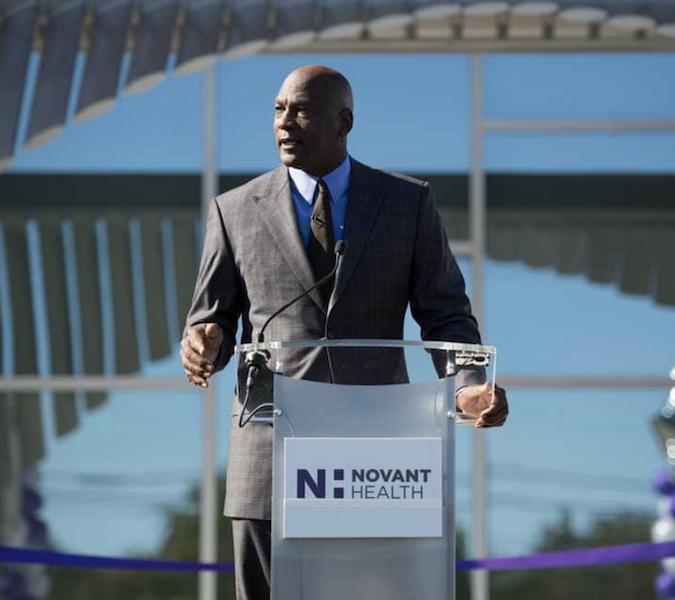When Executive Order 14183 was signed into existence this past January, it banned any military personnel who identified as transgender from service. Though it was initially blocked a few months later, on May 6 the Supreme Court ruled that the ban could continue. As the Military Times shared on May 15, “The Defense Department will begin screening troops for gender dysphoria during their routine physicals in an effort to boot transgender service members from the armed forces.” But it appears Democrats in the House of Representatives are now attempting to reverse the ban once more. The new proposed ruling, as Military Times shared in another article, “would bar the defense secretary from separating any member of the armed forces on the basis of gender identity, including a diagnosis or potential diagnosis of gender dysphoria.’” It would also approve health care for transgender individuals in the military.
There are approximately 4200 transgender individuals currently in the military who want an opportunity to serve their country and have been “serving honorably in the military and have been doing so for years,” according to Advocates for Trans Equality (A4TE). Several thousand more are veterans with families. Amidst the turmoil in the government, countless transgender military personnel have continued to speak out, many of them decorated and high-ranking.
Among them is Colonel Bree Fram of the Space Force who, according to MSNBC, is “the first trans woman promoted to Colonel and one of the highest ranking trans officers in our military 22 years of service.” Fram is also the editor of two books on transgender military service and shares regular listings of decorated trans military personnel on her Instagram.
In another interview with MSNBC, Fram noted:
When things are said that are factually untrue, we have an obligation to talk about those things. And if there’s one thing I would like to note is that when I or anyone else shows up and we do our duty, we wear a uniform, and the first thing that anyone notices about any of us when we walk into the room are the credentials and the responsibility and the capability that that uniform shows. It shows that we have hit those gates over the course of our career. It shows that we have become advanced war fighters in the skill sets that we’ve developed. And so when I walk into a room, the first thing they see is a colonel. They see that rank. They do not see a transgender person.
Commander Emily Shilling, of the U.S. Navy is a “decorated Navy pilot with over 60 combat missions and high-risk work as a test pilot,” according to PBS. She was among those named as a plaintiff in the first case suing against Trump’s 2025 Executive Order. In a recent interview with Politico, Shilling shared that she feels the ban is “devastating”:
It’s not only devastating to the trans individual, but to all their friends and their allies. Studies have shown that the mass majority of our youth support the LGBT community, and are they going to want to work or serve for an organization that doesn’t reflect those values? I got called to the Navy because the motto at the time when I joined was, “A global force for good,” and I truly believed that, and I’m very proud of the service that I’ve done. In my entire adult life I’ve encouraged my kids to go into the military. When I’ve talked to people, I’ve told them that they’ve given me so much, and I’m such a better person for having served. At this moment I can’t give that advice [in] good conscience, and I truly hope, and I choose to hope and believe that our military will prevail in the end, and we will show what honor and courage and commitment look like, and we will stay true to our values, and we will be a service worth serving for.
U.S. Navy Petty Officer Second Class Paulo Bautista is a naval intelligence analyst who transitioned before entering the military. “I earned to wear this uniform rightfully, with HONOR, COURAGE, AND COMMITMENT. No one can take that away from me,” he wrote on Instagram. Bautista also mentors other transgender people who aspire to military service, according to People. “’These kids could be our next president, they could be the next general, and now we’re losing that opportunity because of this,’” he told the magazine.“’To me it’s bigotry, and unnecessary.’”
Army Reserve Second Lieutenant Nicolas Talbott was also among those who sued Trump this year. “When you put on the uniform, differences fall away and what matters is your ability to do the job,” Talbott told GLAD Law. “Every individual must meet the same objective and rigorous qualifications in order to serve. It has been my dream and my goal to serve my country for as long as I can remember. My being transgender has no bearing on my dedication to the mission, my commitment to my unit, or my ability to perform my duties in accordance with the high standards expected of me and every servicemember.”
These individuals are among the many who have spoken up against the ban, and rightfully so. The ban is not only patently discriminatory, dehumanizing, and destructive, it’s also not rooted in any real evidence of any kind, and could potentially cost the government nearly $1B.
The first time President Trump attempted a transgender military ban in 2017, it was reported that action of that nature could actually cost the government some $960M, especially when it comes to recruiting and training cisgender individuals who would potentially replace their transgender predecessors, particularly those highly ranked. Additionally, according to a study completed by the RAND Corporation that was commissioned by the Department of Defense in 2018, “The data indicated that there has been no significant effect of openly serving transgender service members on cohesion, operational effectiveness, or readiness” in the military. Another study from 2020 showed banning transgender individuals would actually impair the military. Plus, transgender medical care currently costs the military $5.2M per year, a small fraction of what in the past has been its $50B budget. Yet on “medication for service members with erectile dysfunction,” according to Newsweek, the military spends $42M on Viagra alone.
It’s worth noting, too, that veteran military leaders have a history of supporting transgender individuals in the military. Upon Trump’s first attempt to ban transgender individuals from the military in 2017, a collection of 56 “generals and admirals from every branch of the U.S. military” spoke out against the action, in a letter published in TIME Magazine:
“This proposed ban, if implemented, would cause significant disruptions, deprive the military of mission-critical talent, and compromise the integrity of transgender troops who would be forced to live a lie, as well as non-transgender peers who would be forced to choose between reporting their comrades or disobeying policy…Patriotic transgender Americans who are serving—and who want to serve—must not be dismissed, deprived of medically necessary health care, or forced to compromise their integrity or hide their identity.”
As the House Democrats move forward, success is not guaranteed. However, if they advocate for a transgender military personnel in the forthcoming debate of the defense authorization bill, Military Times shares, there may be an opportunity, especially since “committee leaders often prefer to avoid controversial social issues in favor of a bipartisan final bill.” We’ll have to wait and see.



















